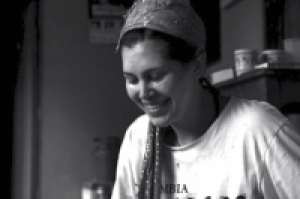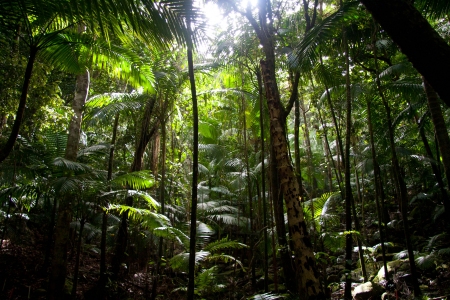 The Association for Tropical Biology and Conservation presents the Alwyn Gentry Award for the Best Student Papers each year at its Annual Meeting.
The Association for Tropical Biology and Conservation presents the Alwyn Gentry Award for the Best Student Papers each year at its Annual Meeting.
In 2013, the Alwyn Gentry Award for the best student oral presentation was given to Ms. Maria Natalia Umaña from Department of Plant Biology & Ecology, Evolutionary Biology and Behavior Program, Michigan State University, East Lansing, Michigan.
Rarity and functional diversity: Do rare tree species occupy the periphery of trait space?
María Natalia Umaña, Min Cao, Brian J. Enquist, Zhanqing Hao, Robert Howe, Liuxiang Lin, Xiaojuan Liu, Keping Ma, Xiangcheng Mi, Jill Thompson, María Uriarte, Xugao Wang, Amy Wolf, Jie Yang, Jess K. Zimmerman & Nathan G. Swenson.
Contact: umanamar@msu.edu
Homepage
Abstract. The causes of variation in relative species abundance have been poorly understood but they are critical to understand the mechanisms driving species coexistence.Hypotheses based on niche partitioning, propose that rare species take advantage of scarce resources that are not exploited by common species;resulting from rare species being ecologically dissimilar from common species.To test this hypothesis, we evaluated plant functional traits as a proxy of ecological performance. Our objective is to evaluate the contribution of rare species to the functional diversity (FD) in different plant communities along a gradient of species diversity. If rare species are functionally dissimilar from common species we expect that they contribute importantly to the functional diversity of the total community. We compiled a dataset comprising six functional traits: leaf area, specific leaf area, leaf nitrogen content, leaf phosphorus content, wood density and seed mass, from eight forest dynamic plots from Asia and the Americas (1055 tree species in total). To evaluate the contribution of rare species to community functional diversity, we performed a trend analysis, where we first calculated a standardized effect size for two FD metrics along the species rank abundance. Second, we quantified whether rare species contribute more to community FD than expected. Supporting our prediction, we found that rare species contributed a higher than expected amount of FD to tree communities with species richness values spanning an order of magnitude. These results suggest that rare species are key contributors of FD in forested ecosystems and perhaps their functioning. Because of their restricted occurrence and low abundance, rare species are particularly vulnerable to habitat disturbance and our results therefore highlight the importance of considering rare species in future species and functional diversity conservation strategies.
More about María Natalia Umaña’s study
I have a BA in Biology and a MA in Biological Science from the Universidad de los Andes in Colombia. I am currently doing my PhD at Michigan State University. Being born and raised in Colombia, I was lucky enough to study biology in one of the most biodiverse places on the planet, thus greatly influencing my interest in tropical plant diversity. Currently, my interest is focused on understanding the processes that underlie and maintain diversity and abundance in species rich plant communities.
- Rainforest in Colombia (© M. N. Umaña)
- Rainforest in Colombia (© M. N. Umaña)
- Bignonia corymbosa (Bignoniaceae) (© M. N. Umaña)
Recent articles
- Umaña M. N., Norden N., Cano A. & Stevenson P. 2012. Maria_Natalia_Umana-Bignonia-corymbosa_Determinants of plant community assembly in a mosaic of landscape units in central Amazonia: ecological and phylogenetic perspectives. PLoS ONE 7(9): e45199. doi:10.1371/journal.pone.0045199.
- Umaña M. N., Stevenson P, Hurtado A. B., Correa D. & Medina I. 2011. Dispersal syndromes among three landscape Units in Colombian lowland Amazonia. Journal of Plant Reproductive Biology. 3: 155-159.
- Umaña M. N., Stevenson P., Alcántara S., Lohmann L. 2011. Bignonia corymbosa (Bignoniaceae): A plant that deceives their floral visitors. Journal of Plant Reproductive Biology. 3: 15-22.







